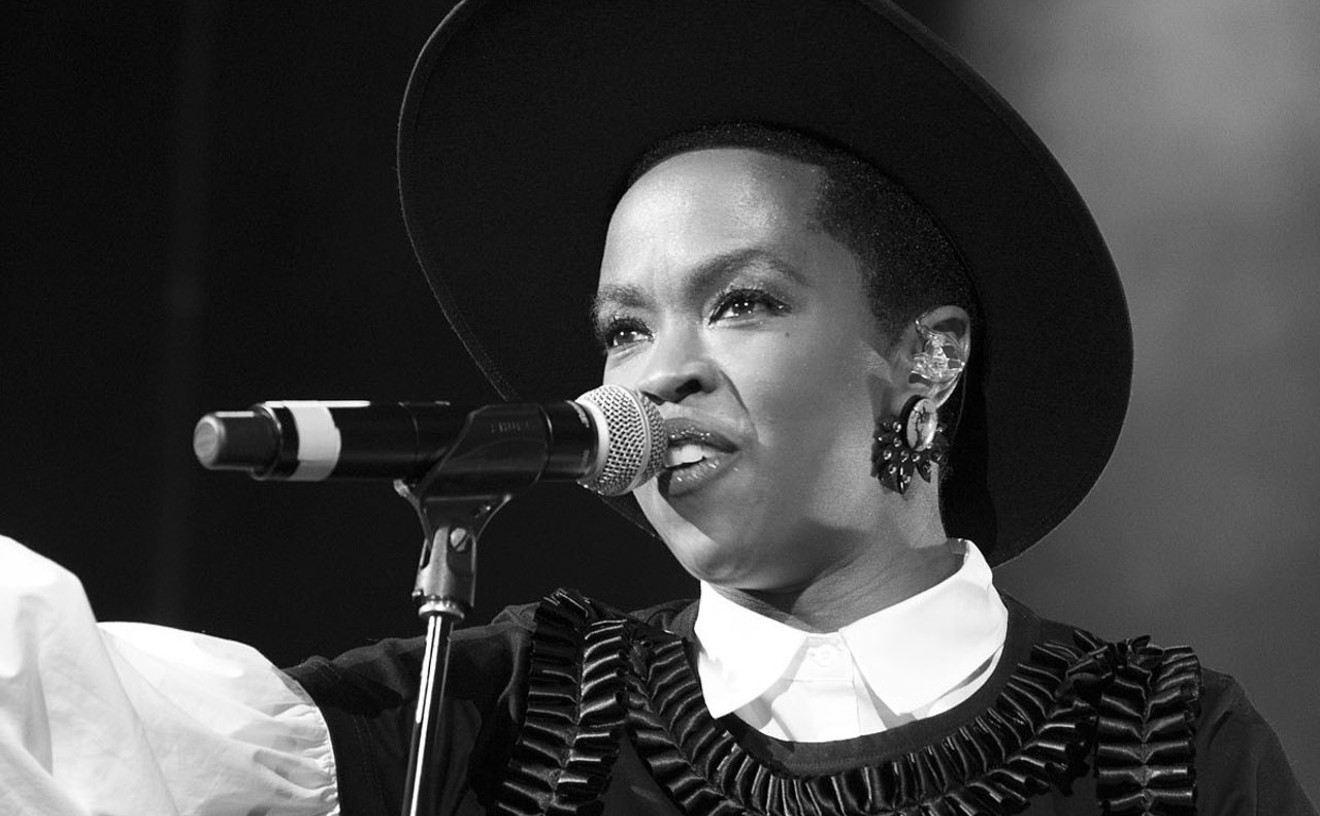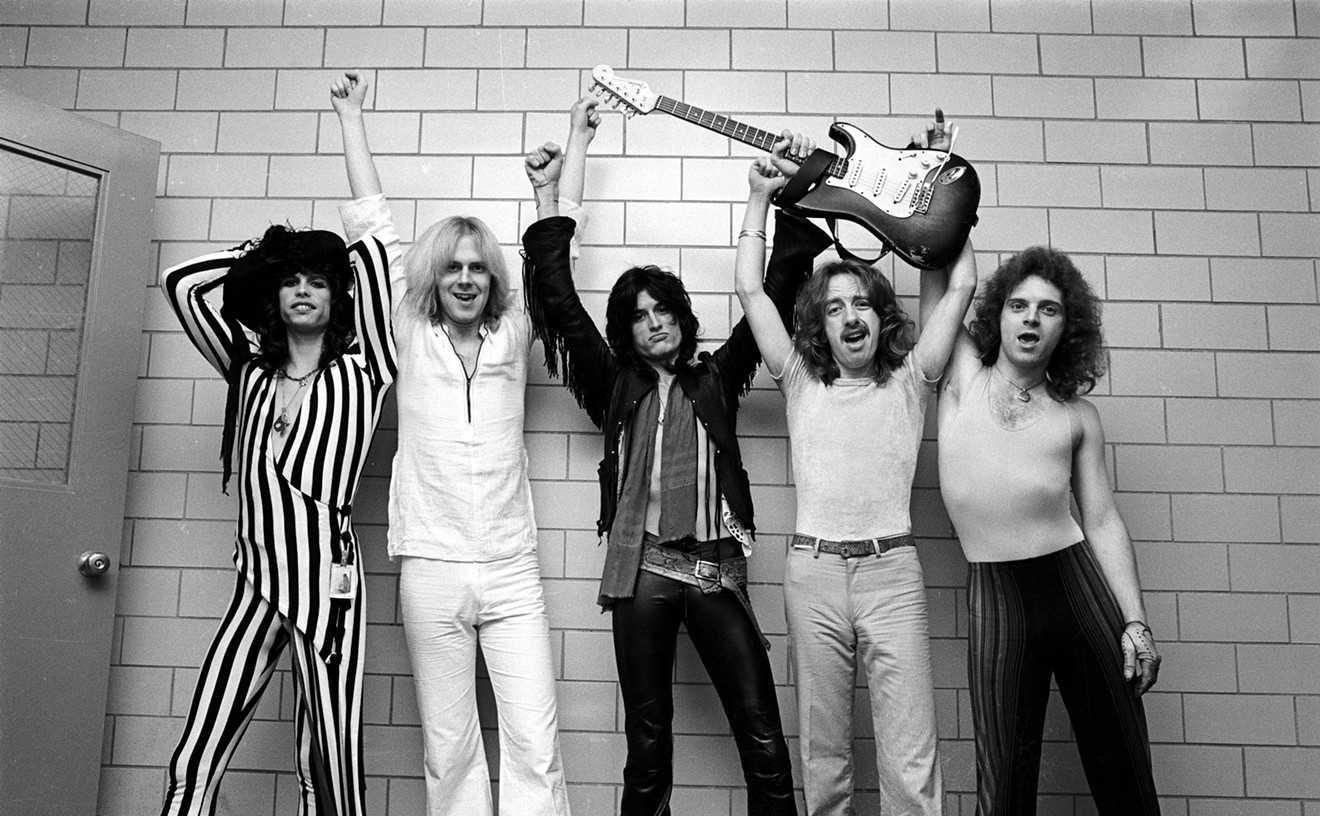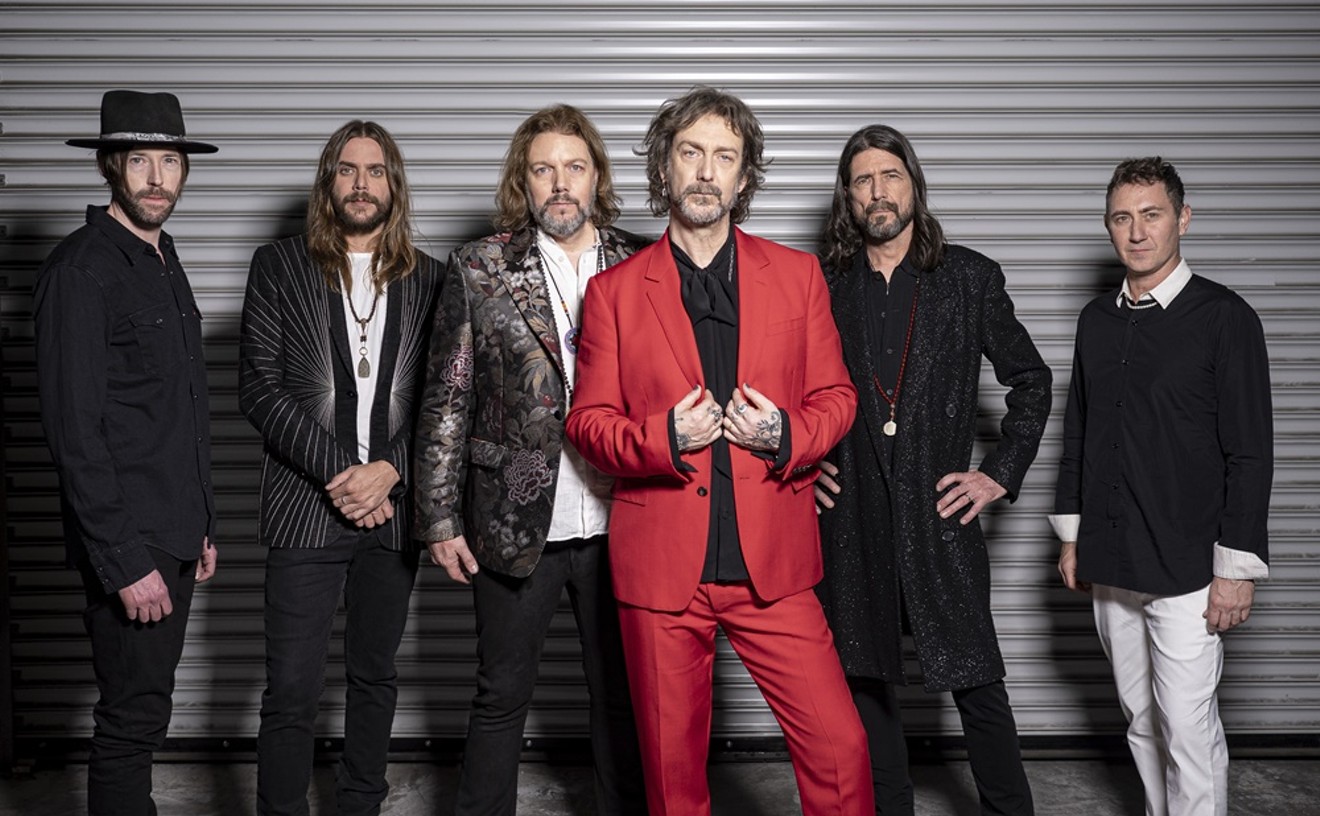A longtime fan of rap, she broke out as indie "suburban rap queen" (also the title of her first mixtape) K.Flay in the Bay Area music scene.
The Illinois native quickly amassed a following for her genre-bending, clever, quick-fire verses, and sense of humor, all of which landed her debut full-length, Life as a Dog, on Billboard's Rap Albums chart.
She then toured with diverse artists from Snoop Dogg to Passion Pit to appearing on the Vans Warped Tour — eventually splitting with RCA Records. Now, K.Flay is doing things her own way and letting her honest, gritty music speak for her.
New Times: As the story goes, you never planned to get into music. What happened?
K.Flay: Growing up, I knew how to play the guitar — my dad taught me when I was young, just rudimentary stuff. I think he just wanted someone that he could get drunk and play music with, which I did participate in that.
I started experimenting with making music in college unexpectedly, and that was really when I started to dip my toes into that weird ocean. After I graduated, that's when I decided to start putting concerted time and energy into improving my skills as a producer, as a songwriter, as a performer, all that.
"It's like giving a fuck so much that you don't, if that makes sense."
tweet this
Who, then, aside from your late father, are your biggest influences?
I think in a personal dimension, my whole family: my mom; my stepdad who adopted me later, so he is my father also; my brother and sister. One thing I really appreciated about the way I was raised was that our home life — and this was both at my mom's and my dad's house — was one that really celebrated curiosity and wherever that questioning may lead.
I always felt stimulated by the people very, very close to me on an intellectual level, in a creative way, too. They've been super inspirational in a lot of ways that I probably can't even tell.
So you started making music from all these inspirations and influences, and it breaks the rules. Is that on purpose or did it just come out that way?
It kind of just came out that way. You know, I think for me it was like, initially, it felt like it was something I should try to fix because I know it was harder — for myself included — to understand something that's kind of in between a lot of genres immediately. It takes a little bit of time. As you know, I started playing shows with that "be me" philosophy, and a lot of my own creativity started to flourish internally, and for
You started playing these shows and got into the local scene and then started touring a little bit, notably on Warped Tour. What were your biggest takeaways from that experience, from opening, and from headlining?
Oh my God. I could talk about Warped Tour for, like, 30 minutes.
First of all, I was so fucking hot. I've never been that physically uncomfortable for that long in my life, which I guess is a sign of incredible privilege for always having
On Warped, you might be playing at 10 o'clock in the morning in the baking hot sun and everybody is exposed. I just always felt like everybody — the crowd, the performers, everybody who works at the stage — nobody is hidden. It forced me to go without relying on the things.
From all these experiences, you ended up on Night Vision Records [an imprint of Interscope founded by Dan Reynolds of Imagine Dragons.] How did you end up there?
Basically a year ago, I was starting to work on my next record, and I'd been working on a bunch of songs in Nashville with a producer named JT Daly. Dan heard my demos, and reached out
Did this recent direction change influence the don't-mess-with-me attitude that your music reflects?
Maybe it's just the climate of the world right now, but I feel especially as a woman that has a voice through music that can be heard in a lot of different ways, I feel this imperative to be assertive and vocal and not give a fuck. I do, but it's like giving a fuck so much that you
You've been running commentary on a lot of topics ever since you started out. Do you have a favorite or one that you'd like to explore more?
One of my favorites, and one that I'll probably never stop thinking about, is the nature of legacy in anyone's life and the ways in which the past echoes in your present. For me, I think a lot about it in relation to specifically my dad, and it's one of those things that I'll never have the answers to it, especially since he passed away when I was younger, so a lot of the questions that I'd want to have the answers to I can literally never have.
Finally, is there a story behind your Twitter biography? [It reads: "bad at Jenga"]
One could say the story began in fourth grade when I was just fucking horrible at Jenga. I'm terrible at Jenga! It's one of those games that requires spatial awareness, which I don't have. I should never be an engineer or an architect or something like that. I've just never been all that good at figuring those things out intuitively. The second thing is you need to just be really not anxious. I think the people who succeed at Jenga are just very relaxed and calm. They're like, "Whatever!" if it falls down, whereas I'm like, "Oh my
K. Flay is scheduled to perform Sunday, February 5, at Crescent Ballroom.











